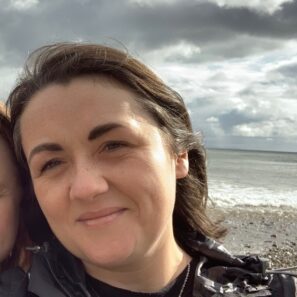Uncovering solutions and actions in Data Poverty Lab phase three
Data Poverty Research Associate, Sarah Knowles, joins Good Things to forge ahead with the third phase of the Data Poverty Lab, explaining the achievements of the Lab so far and what's to come in the year ahead.
What is the Data Poverty Lab?
The Data Poverty Lab (DLP) was established in 2021 by Good Things Foundation with one of our now strategic partners, Nominet. With the goal of making the internet affordable and accessible for people on low incomes, the DPL has delivered a programme of work to find sustainable solutions to data poverty – the challenge of not being able to afford enough mobile and broadband data.
The Lab has been busy…
- In its first year, the CHESS criteria for defining effective solutions were established alongside the launch of the National Databank, like a food bank but for free mobile data
- In 2022, three Data Poverty fellowships were funded to deep dive into how and why we should be tackling data poverty.
- Phase Three of the DPL is now beginning, with the creation of the Data Poverty Research Associate role. The aim for this phase is to gather information about different solutions that have been developed to reduce data poverty, assess how feasible and impactful they could be, and present the findings to government, industry and civil society stakeholders who can act on the recommendations.
As someone who has worked in the digital sector, particularly around health and social care, I’ve seen too many times how essential services or crucial opportunities can be inaccessible for people experiencing data poverty. The Associate post, which recognises both the need for a strong evidence base to guide decision making about how to help, and the need for engagement and advocacy to get that evidence to the people making decisions, lets me draw on my academic background in evidence synthesis alongside my expertise in knowledge mobilisation (the work of making knowledge useful and working with knowledge users).
Phase three – or Act three?
Chris Ashworth, Head of Social Impact at Nominet, described the forthcoming year and third phase of the DPL to me as “not just phase three, but Act three”.
The focus now is on what actions could be taken to address the data poverty challenge, and who needs to hear about those solutions to affect change. By drawing on the co-developed CHESS framework to assess what a good solution would look like, the research will identify which solutions could best support change at scale.
Over the next 12 months, I’ll be working with Good Things Foundation, the National Digital Inclusion Network, and strategic partners VMO2, Vodafone, and Nominet, to gather, analyse and share the evidence about ‘what works?’ in making a difference for people experiencing data poverty.
Data poverty needs action at all levels
Data poverty is a challenge that has to be understood at multiple levels, considering innovations that enable individual access (such as Jangala’s Wifi in a Box) through to larger scale, industry solutions such as broadband social tariffs, and we’ll be exploring those options and more. We’re also really keen to hear about bottom-up solutions generated by communities themselves – and want to ensure we’re recognising creative and tenacious approaches from outside the UK.
We want to make sure we’re connected to the reality on the ground for people living with and working to overcome data poverty, and will be drawing on the enormous expertise and insight from our digital inclusion hubs, considering solutions in terms of their ability to meet the real needs of the diverse groups of people affected.
Stay informed on the Data Poverty Lab findings
I’ll be posting again about our progress and sharing what we’ve learned. You can keep up to date with this latest ‘Act’ of the Data Poverty Lab by signing up for Good Things’ newsletter and following us on social media:

Meet Dr Sarah Knowles
Data Poverty Research Associate
Dr Sarah Knowles is a freelance researcher focused on addressing health and social inequalities through collaborative research in the digital sector. Her background is in implementation science and knowledge mobilisation in academia for funders such as NIHR and UKRI. She now works with stakeholders in the public, commercial and voluntary sectors to conduct and share research that is useful and usable.
